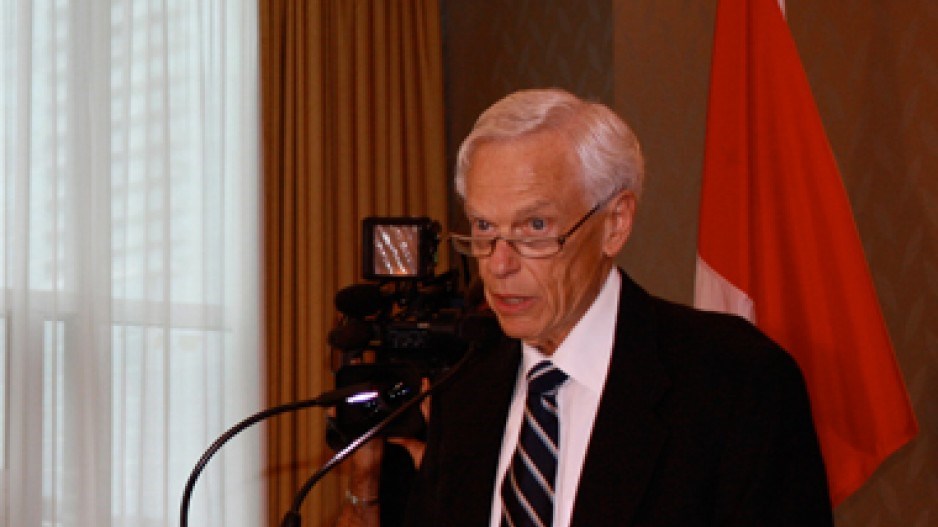Even as Justice Bruce Cohen was preparing to present his recommendations for protecting B.C.’s wild salmon stocks to Ottawa, Ottawa was watering down habitat protection regulations and planning to reduce the number of Department of Fisheries and Oceans habitat protection staff, says former DFO biologist Otto Langer.
“They basically cut Cohen off at the knees,” said Langer, who appeared before the Cohen Commission as part of a conservation coalition.
Anonymous sources inside DFO tell Langer that habitat protection staff are being cut by 30%, and the remaining staff are being moved away from communities along salmon migration routes and centralized in Vancouver and Nanaimo. BC Conservative Party Leader John Cummins – the former Conservative MP who was instrumental in having the commission struck in the first place – is equally pessimistic that any of the fundamental changes needed in fisheries management will come as a result of Cohen’s recommendations.
“It’s a complete waste of $26 million,” said Cummins, who added that Cohen failed to examine fundamental fisheries management problems within DFO.
Following the inquiry that ran from March 2010 to February of this year, Cohen produced a 1,191-page report with 75 recommendations that was tabled in the House of Commons on October 31. Its key recommendations include:
•an immediate eight-year freeze on new salmon fish farms in the Discovery Islands;
•new siting guidelines and increased monitoring of fish farms;
•the removal of the promotion of fish farming from DFO’s purview;
•switch from the “derby” approach to a quota-based system for the commercial sector (a move sure to anger many commercial fishermen);
•clearer definitions of the native food, social and ceremonial fishery (FSC) and adjustments to FSC allocations, accordingly.
Cohen’s report is the product of an inquiry struck by the Stephen Harper government in 2009 to probe the collapse of the 2009 Fraser River sockeye run.
Only 1.3 million sockeye returned to the Fraser River that year – the third year in a row where the commercial fishery was shut down. The next year, however, B.C. saw one of the largest runs in a century – 29 million fish. Cohen concluded there is no single “smoking gun” that could explain either the 2009 collapse or the 2010 rebound, although he said there was little doubt that warming ocean and river temperatures resulting from climate change are among the many stressors salmon face in their four-year life cycle.
He also concluded there is evidence that diseases from fish farms can pass to wild fish and therefore recommended new siting guidelines.
“If existing salmon farms do not comply with revised siting criteria, they should be promptly removed or relocated,” Cohen said. “DFO’s first priority must be the health of the wild stocks.”
Stewart Hawthorn, a board member with the BC Salmon Farmers Association, said there are only five salmon farms in the Discovery Islands area out of a total of about 70 provincewide.
Some of the issues facing the west coast fishery were supposed to be addressed in the Wild Salmon Policy, which was adopted in 2005 but only half-heartedly implemented.
“I was disappointed to discover that, seven years later, little progress has been made in full implementation of this policy,” Cohen said.
“There’s no full implementation plan, DFO has not performed a comprehensive costing exercise, and Ottawa has not set aside dedicated funds for its full implementation.”
Ottawa’s scheduled Wednesday afternoon teleconference call to respond to the report’s findings was cancelled due to technical difficulties. •




